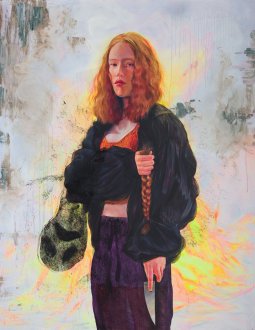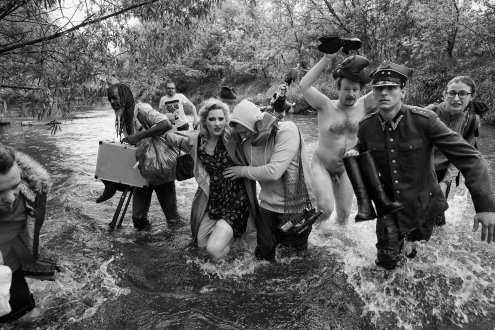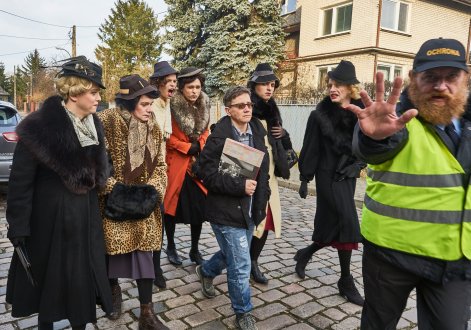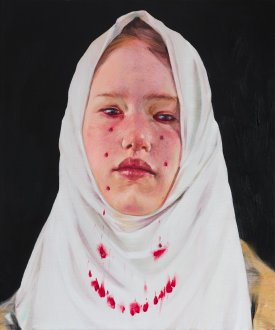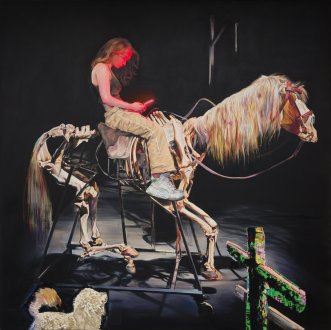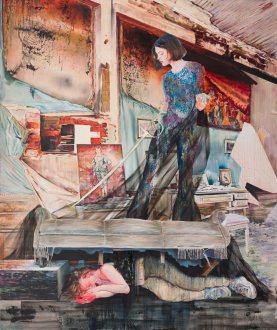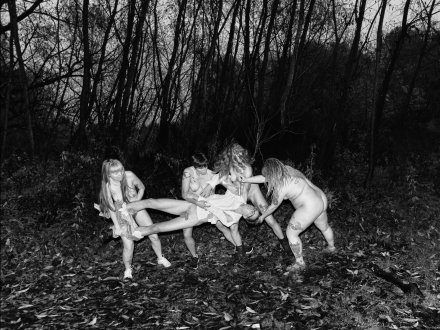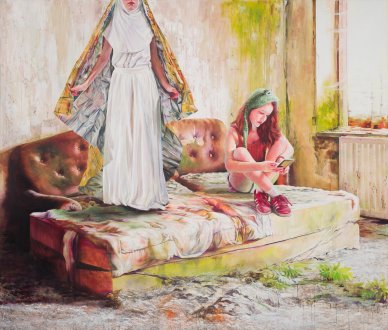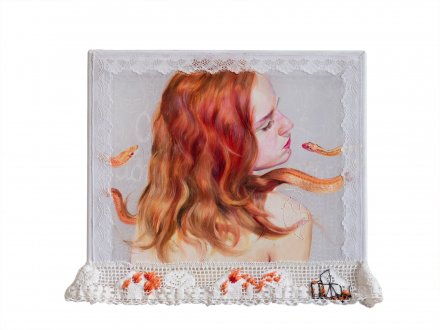Kus + Libera (Works)
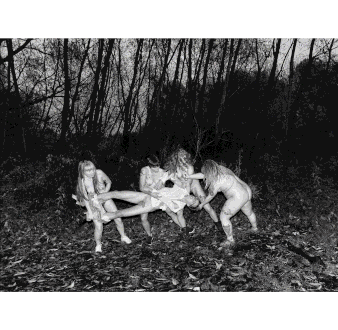
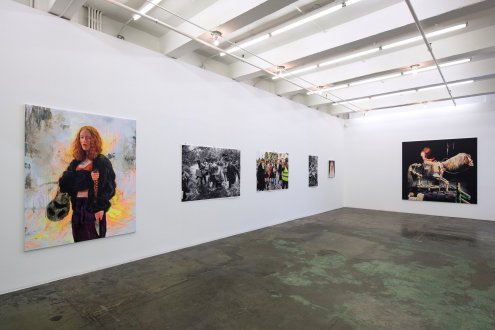
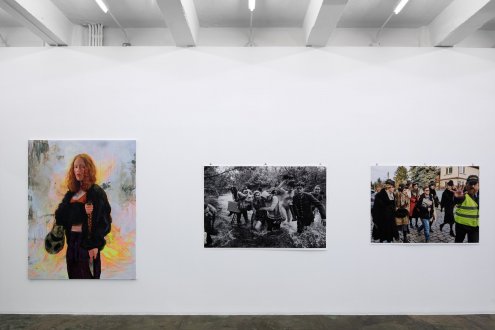
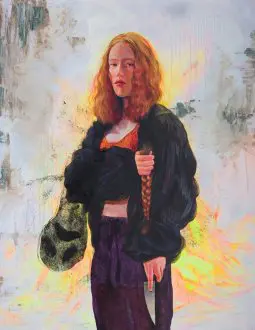 Student, 2023. Oil and luminescent acrylic on canvas, 71 x 55 in.
">
Student, 2023. Oil and luminescent acrylic on canvas, 71 x 55 in.
">
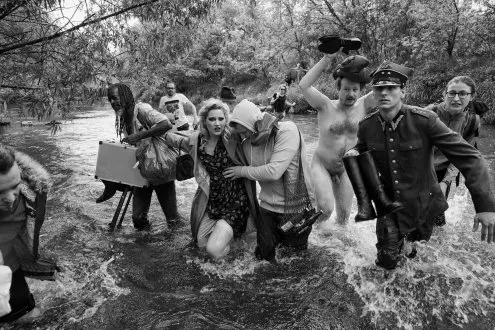 Yes, This is What You Think it is, 2017. Inkjet print, 44 x 64 in, edition of 5 (+ 1AP).
">
Yes, This is What You Think it is, 2017. Inkjet print, 44 x 64 in, edition of 5 (+ 1AP).
">
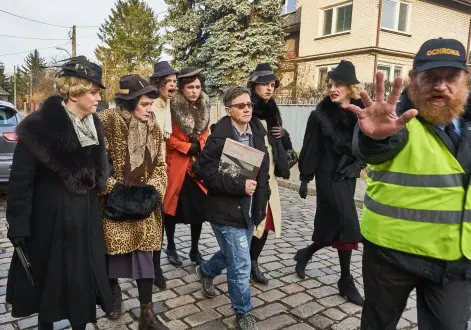 Poetess Maria de Cyrano, 2020. Inkjet print, 44 x 64 in, edition of 5 (+ 1AP).
">
Poetess Maria de Cyrano, 2020. Inkjet print, 44 x 64 in, edition of 5 (+ 1AP).
">
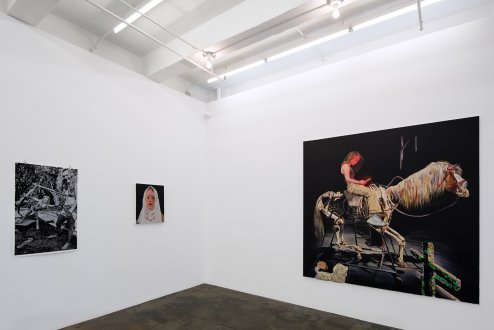
 Girl with Drum Stick, 2017. Inkjet print, 41 x 25.5 in, edition of 5 (+ 1AP).">
Girl with Drum Stick, 2017. Inkjet print, 41 x 25.5 in, edition of 5 (+ 1AP).">
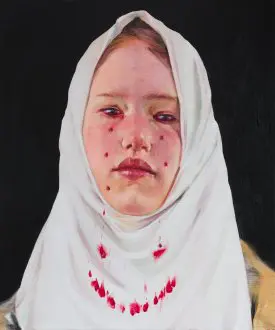 Necklace II, 2023. Oil on canvas, 16.5 x 19.5 in.
">
Necklace II, 2023. Oil on canvas, 16.5 x 19.5 in.
">
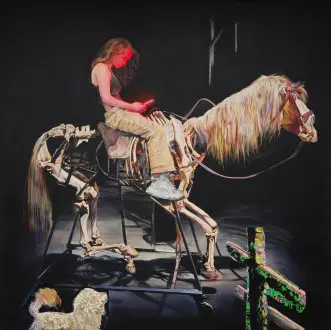 Come and See, 2023. Oil and luminescent acrylic on canvas, 78.75 x 78.75 in.
">
Come and See, 2023. Oil and luminescent acrylic on canvas, 78.75 x 78.75 in.
">
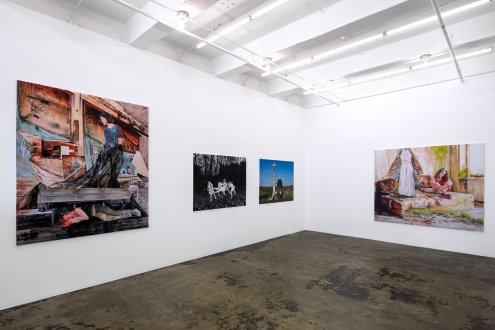
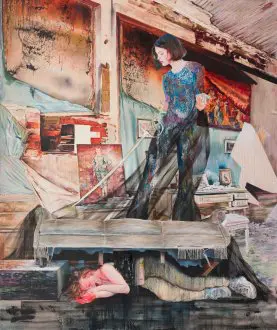 The Collector, 2023. Oil on canvas, 74.75 x 63 in.
">
The Collector, 2023. Oil on canvas, 74.75 x 63 in.
">
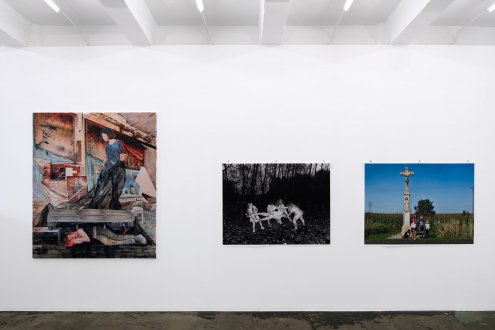
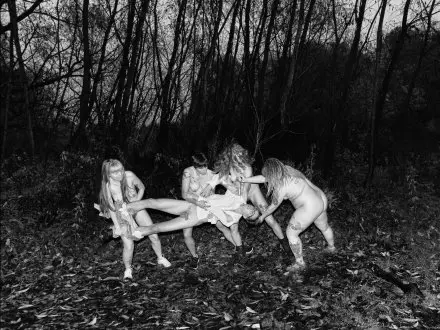 Death of a Patriot, 2015. Inkjet print, 44 x 64 in, edition of 5 (+ 1AP).
">
Death of a Patriot, 2015. Inkjet print, 44 x 64 in, edition of 5 (+ 1AP).
">
 Son Land, 2021. Inkjet print, 44 x 64 in, edition of 5 (+ 1AP).
">
Son Land, 2021. Inkjet print, 44 x 64 in, edition of 5 (+ 1AP).
">
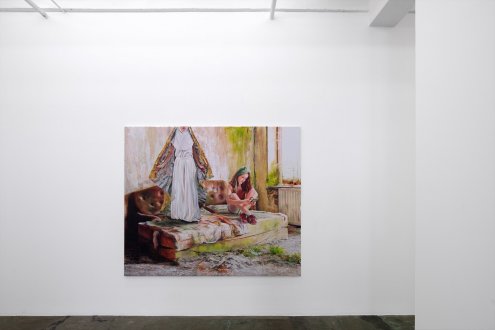
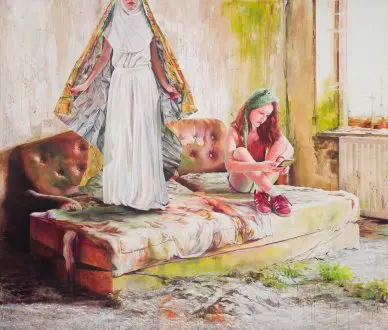 The Call, 2023. Oil and luminescent acrylic on canvas, 67 x 78.75 in.
">
The Call, 2023. Oil and luminescent acrylic on canvas, 67 x 78.75 in.
">
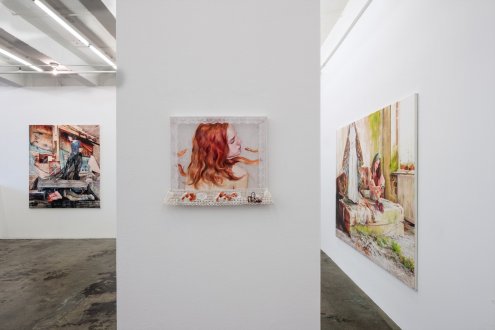
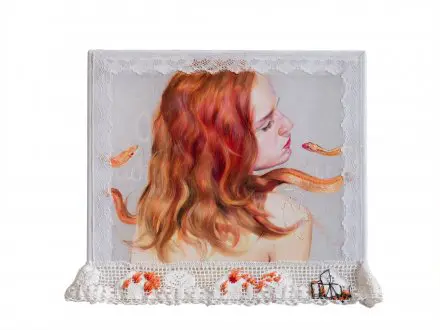 Medusa, 2023. Oil on tulle, embroidery, 12 x 13.75 in.
">
Medusa, 2023. Oil on tulle, embroidery, 12 x 13.75 in.
">
Selected Works
Agata Kus, Zbigniew Libera
Opening reception: Thursday, September 7, 6 - 8:30 pm
Pre-opening concert with Shahzad Ismaily and Michał Dymn
Tuesday, September 5, at 5pm (free, doors open at 4:30)
Kus + Libera Press Release
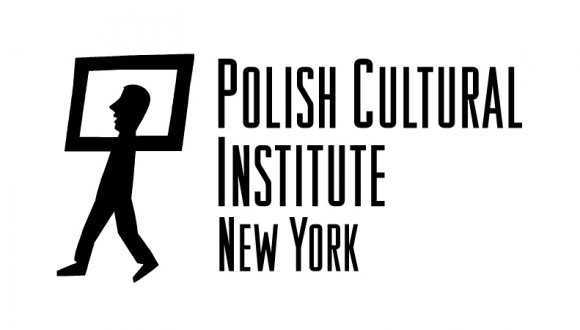
| Thomas Erben Gallery is very excited to present Kus + Libera, featuring the work of Agata Kus, in her US debut, and Zbigniew Libera. The show, opening Thursday, September 7, is supported by the Polish Cultural Institute New York and co-curated by its Curator of Visual Arts and Design, Izabela Gola.
On view are recent photo works by critically lauded and prominently exhibited conceptualist Zbigniew Libera (b. 1959) as well as paintings by Agata Kus (b. 1987), who is part of the current surge of mainly young, female, figurative painters, and whose work has garnered widespread attention. Libera began exhibiting in the early 1980s behind the “iron curtain” in a Poland seeking to free itself from Soviet rule, whereas Kus’s generation operates within and confronts a market-oriented, now capitalist society. The juxtaposition of their work shows how two artists – 30 years apart in age and brought up under opposite political systems – respond to their contemporary situation. Realizing how and why each artist triggers and recontextualizes collective memories is key to understanding their work. Whereas Kus depicts her contemporary female protagonists in decayed interiors, recalling the neoclassical architecture of 19th century Poland and heightened patriotism in the face of its century-long partition by Russia, Prussia, and the Austrian Habsburg Monarchy – Libera often stages his photos from, what he calls, “the piles of images in our heads”. His Poetess Maria de Cyrano (2020), for example, is reminiscent of the 1960s Civil Rights-era photograph of African American girl Ruby Bridges being escorted by police so that she can attend elementary school. While this connection draws us in, the work confounds on multiple levels. It presents a mob of elegantly, upwardly dressed men in drag, who – in a reversal of the conventional social order – assault and attack the central figure, a middle-aged woman, stoically marching and protectively clutching Julius Shulman’s A Constructed View, which documents Los Angeles’ mid-century architecture. Could the modest poetess be the reason for this aggression or perhaps the book, an ode to “modernity”? And as the figure of a guard intrudes from the right of the picture, is he deliberately trying to keep us out? What are we not supposed to see? Unlike the pieces of a jigsaw puzzle, which together form a cohesive image, Libera lets a multitude of ideas collide without offering resolution. Likewise, though rendered in oil on canvas as well as engaging a long tradition of symbolism and mysticism, Kus juxtaposes images to equally open-ended, enigmatic ends. In Come and See (2023), a seductively painted young woman sits atop the skeleton of a horse, rendered after a prop used by Tadeusz Kantor in his experimental theatre piece, Let the Artists Die (1985). The morbidity of the scene is softened with cutesy details, such as hair clips in the horse’s mane or a tail-wagging, little dog. Kus’s theatrical tableaux evoke a grand past, yet her dilapidated interiors point toward collapse. This creates a stark contrast with her young women, who – though presented as self-possessed and materially well off, considering their up-to-date fashions – are portrayed as unmoored, disengaged and mainly gazing at their iPhones. In both bodies of work, there is a dialogue between past and present. Whereas Libera sees a possibility for change in the continuation of a progressive social agenda — be it feminist, antimilitarist, or critical of institutional religion, Kus presents us with a contemporary condition in stasis. But her inclusion of religious symbols, removed as they might seem from official iconography – such as the likeness of St. Mary, her face bisected by the canvas edge or her tears of blood replaced by rhinestones – hint at the possibility of redemption amidst a crisis of meaning. |
